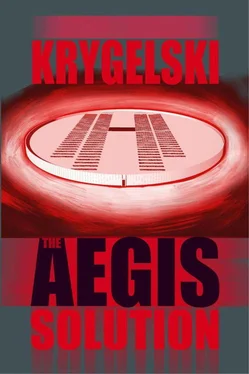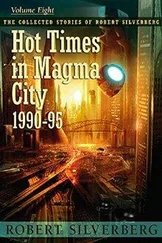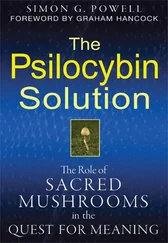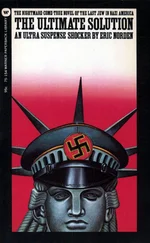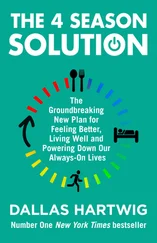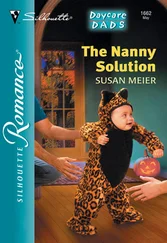“Couldn’t we take it a step at a time?” Leah suggested. “We have a more than sufficient supply of food and water. Couldn’t we lower enough to sustain them for now, and decide in a few days what our next step is?”
After reflecting on her proposition for a moment, Wilson spoke. “The single most significant unknown for us is how long we must survive within Aegis. We know for a fact that additional shipments will not be forthcoming. How can we say that we have an ample supply of food when it is possible that we will need to remain within these walls for a year? It may take every morsel in our stores to keep all of us alive until it is safe to emerge from Aegis.”
The image of the future, as painted by Wilson, caused all of the people around the table to visualize the upcoming weeks and months, each scenario painted with the perspective and the fears of that individual. A somber silence fell over the group.
Wilson continued, “I fear, as time marches inexorably forward, that we will be faced with some very distasteful and harsh decisions, decisions which will test the limits of our intellect and our humanity. This question today is merely a sample, the first of many. I believe it is critical that we understand two things as we wrestle with each of the impending dilemmas yet to come. The first is that we recognize the burden we carry. Our very existence, as the populations of the world succumb to extinction, may be the last hope for the continuation of mankind on Earth. We must never lose sight of this. Every choice, large or small, must be viewed through the lens of this duty.”
Wilson paused and Elias asked, “And the second?”
Wilson’s eyes riveted to Elias. “The second? Why, that is obvious. Mankind… our species… must be worthy of saving. Otherwise, what is the point? Therefore, despite the unknown answers to our questions, I don’t see any reason we shouldn’t take that first step, and feed and cloth those poor souls outside our walls.”
Pierce waited for a time, giving anyone who might have an objection a chance to voice it, before he concluded, “Then it’s settled. We will provide food, water, additional clothing, and blankets, since I doubt any of them expected or planned for the cold temperatures out there.”
For the first time since the meeting began, Samantha spoke up. “This isn’t right.”
“Why, Sam?” asked Matt.
“It isn’t just us we’re talking about; it’s all those people standing outside that door and all of the others inside Aegis. We’re sitting in here deciding whether we should give away their food. Shouldn’t we ask them? Shouldn’t they get a vote?”
Wilson drew in a deep breath, clearly planning to respond, when Pierce spoke up. “Miss Clements, what you are talking about is a democracy.”
“Right! Isn’t a democracy the best way to govern?”
“This may come as a surprise to you but, no, it isn’t.”
She hesitated, startled by his response, and stammered, “I… I don’t… why not? That’s what America is… was!”
“Actually, it is a republic, not a democracy.”
“What’s the difference? We vote.”
Pierce was in his element. He had, in fact, been preparing for this discussion his entire life, his position and his arguments finely honed by years of arguing with, at first, his sister, then countless others. “Numerous papers were written by our founding fathers. They referenced intense and occasionally heated debates on this very subject. The truth, Miss Clements, is that Americans do not vote on any thing; it is not our role to pass laws and make decisions. We have only one task to perform as citizens, and that is to vote for candidates. It is up to the elected officials to pass laws, to set priorities, in other words… to govern, the exception being the occasional proposition or referendum within the states. In fact, we do not even technically elect the President. That decision, according to the Constitution, is made by the electoral college which, originally, was intended to be a group of the wisest and most trusted members of each community, appointed at the state level, who would then travel to a meeting and, without further input from the populace, select our leader.”
“But it doesn’t work like that anymore. Except for a couple of close ones, the person we’ve elected is the one who gets the job.”
“True. I’m talking about the original intent. Ever since the Seventeenth Amendment, which took effect in 1913, we also now directly elect senators. But at the time the Constitution was signed, senators were selected by the legislatures of each state.”
“Really? I didn’t know that. Why did they do it that way? It sounds elitist.”
Pierce smiled. “The concept of checks and balances. The House of Representatives was the people’s house. Congressmen were elected directly by the voters. The Senate, chosen by state leaders, was intended by the framers to be the cream of the crop in terms of intelligence, wealth, education, experience, and the like. Over our early history, the litany of bills proposed and passed in the House reflects people attempting to govern in their own self-interest. You would be amazed at the nature of some of those bills. A large number would have been, essentially, handouts to the public. Had the vast majority of the proposed legislation passed, America would have been bankrupt a century ago. Since the bills were then turned over to the Senate, they quickly died, never reaching the desk of the President for a signature.
“And the reciprocal also worked quite effectively. The Senate, in those days, frequently proposed legislation which would support, enhance, and subsidize business, industry, and the landed gentry. In other words, they, too, pursued their self-interests. When these bills stepped over the line and created a blatant handout to industry, for example, the legislation failed to survive the House. Insofar as constitutional power, the two interests were balanced. If the, as you described them, elites in the Senate wanted something, they had to modify it, temper it, and make it palatable to the House, whose only goal was to obtain the best deal it could for the people. And the reverse was true. When the House wanted something that would benefit the general population, they had to make it attractive to the Senate. The system, before it was modified, was designed to give both sides equal power so that only legislation which made sense for the job creators, wealth creators, and industry builders… as well as for the workers and the citizen population in general… could pass. And if the pendulum swung too far in either direction, the Supreme Court was standing by to swing it back.”
“I still don’t see how this relates to our situation here.”
“I have digressed a bit, but only to provide context. As you can see, Jefferson, Madison, Franklin, and the others knew that pure democracy was as tyrannical as any dictator or monarch. That was why they placed so many layers between the voter and the final piece of legislation — to temper that despotic tendency of the population.”
“Are you saying that people, when they vote as a group, would do bad things? I don’t think I believe that. People are basically good.”
“You are right; for the most part, they are. On a one-on-one basis, a person will help another, even to his or her own detriment. But pure democracy is nothing but mob rule. And the mob mentality is something quite different; this difference is exacerbated and compounded by the privacy of the voting booth. Let me ask you a question. Do you believe, in the late 1950s and early 1960s, that had it all been put to a popular vote, the Civil Rights Acts would have passed? Before you answer, I’ll tell you that, according to the polls, according to all measurements of public opinion, they would not. Nor, in the previous century, would slaves have been freed. Women would not have received the privilege of voting. We would not have entered World War I or World War II, at least not until the enemy had reached our shores.
Читать дальше
